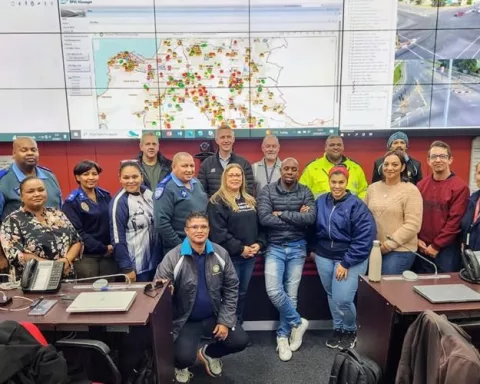The Springboks’ victory in rugby represents unity and reconciliation in South Africa, and serves as a reminder of the power of sports in bringing people together. The government recognizes the importance of sports development at the grassroots level, and the Springboks’ triumph has inspired a new generation of rugby enthusiasts. The team’s success also symbolizes social cohesion and national pride, offering valuable lessons in leadership and decision-making for scholars and business leaders alike. The Springboks’ achievements serve as a source of inspiration for future generations, fostering a sense of unity and belonging among all South Africans.
What is the significance of the Springboks’ victory in rugby?
The Springboks’ victory in rugby symbolizes unity and reconciliation in a nation that has grappled with numerous obstacles and challenges. It also functions as proponents of social cohesion and serves as a reminder of the power of sports in uniting people. The South African government acknowledges the significance of sports development at the grassroots level, and the Springboks’ achievements have inspired a new wave of rugby enthusiasts who aim to emulate the feats of their heroes.
South Africa’s Pride in Rugby Triumph
On November 1, 2023, South Africa witnessed the glorious return of their four-time world champion Springboks rugby team at the SuperSport Home Coming event in Randburg, Gauteng. The entire nation celebrated the Springboks’ victory at the Rugby World Cup (RWC), further enriching South Africa’s remarkable history on the global sports arena.
Rugby, like other sports, has the unique ability to overcome cultural, linguistic, and historical differences, bringing people together for a shared purpose. The 2023 RWC exemplified this fact as South Africans from all backgrounds supported the Springboks, exulting in their wins and taking pride in the team’s representation of the nation’s dreams and ambitions. The Springboks’ achievements on the international stage have far-reaching consequences, motivating young individuals to aspire for greatness.
Grassroots Development and the Government’s Role
The South African government acknowledges the significance of sports development at the grassroots level. Minister of Sport, Arts and Culture, Goodenough Kodwa, highlights the necessity of prioritizing talent discovery and cultivation in schools and communities. The Springboks’ triumph has inspired a new wave of rugby enthusiasts who aim to emulate the feats of their heroes such as Eben Etzebeth, Pieter-Steph du Toit, Bongi Mbonambi, Damian Willemse, Cheslin Kolbe, Faf de Klerk, and Siya Kolisi.
With the emergence of new rugby clubs and increased participation, it is crucial to invest in infrastructure, coaching, and talent scouting to ensure that potential future champions receive the support they require. Establishing channels for young athletes to advance from grassroots-level competition to elite performance is essential for the sustained growth and success of South African rugby.
Symbolic Significance and Social Cohesion
The Springboks’ victory carries importance beyond the rugby pitch. It symbolizes unity and reconciliation in a nation that has grappled with numerous obstacles and challenges. The team’s accomplishments serve as a wellspring of national pride, contributing to the pursuit of a genuinely non-racial South Africa that belongs to everyone residing in it.
In addition to their symbolic victory, the Springboks also function as proponents of social cohesion. Siya Kolisi’s appointment as captain in 2019, a decision made by then-Director of Rugby Rassie Erasmus, was a courageous move that demonstrated a commitment to fostering unity and inclusivity within the team. This choice, despite initial doubts, has proven successful and exemplifies the type of leadership necessary for a nation to progress.
The Springboks’ achievements have also been facilitated by the unwavering backing of sponsors, allowing them to compete at the highest level. This support has not only supplied the needed resources for the team to excel but also nurtured a sense of unity and strength among the nation’s populace. The enthusiasm and pride exhibited by South Africans during the RWC underscored the profound influence of sports on social cohesion and national unity.
Learning from the Springboks’ Success
The Springboks’ victory offers an opportunity for scholars and business leaders to glean lessons from their accomplishments. Analyzing the team’s experiences can yield valuable insights into leadership, decision-making, and the quest for a socially cohesive society. The knowledge gained from the Springboks’ journey can encourage both the private and public sectors to collaborate towards a unified, more robust South Africa.
In conclusion, the Springboks’ triumphant return serves as a reminder of the power of sports in uniting people and advocating social cohesion. As the nation revels in the glory of their champions, it is vital to maintain this momentum and continue investing in the development of grassroots sports and talent discovery. With persistent support and commitment, the Springboks can continue to inspire future generations of athletes, fostering a sense of unity, identity, and belonging amongst all South Africans.
1. What does the Springboks’ victory in rugby symbolize?
The Springboks’ victory in rugby symbolizes unity and reconciliation in a nation that has grappled with numerous obstacles and challenges. It also functions as proponents of social cohesion and serves as a reminder of the power of sports in uniting people.
2. How has the Springboks’ victory inspired a new generation of rugby enthusiasts?
The South African government recognizes the significance of sports development at the grassroots level, and the Springboks’ achievements have inspired a new wave of rugby enthusiasts who aim to emulate the feats of their heroes.
3. What is the government’s role in promoting grassroots sports development?
The South African government acknowledges the significance of sports development at the grassroots level. Minister of Sport, Arts and Culture, Goodenough Kodwa, highlights the necessity of prioritizing talent discovery and cultivation in schools and communities.
4. Who are some of the Springboks’ heroes?
Some of the Springboks’ heroes include Eben Etzebeth, Pieter-Steph du Toit, Bongi Mbonambi, Damian Willemse, Cheslin Kolbe, Faf de Klerk, and Siya Kolisi.
5. Why is investing in infrastructure, coaching, and talent scouting important for the growth and success of South African rugby?
With the emergence of new rugby clubs and increased participation, it is crucial to invest in infrastructure, coaching, and talent scouting to ensure that potential future champions receive the support they require. Establishing channels for young athletes to advance from grassroots-level competition to elite performance is essential for the sustained growth and success of South African rugby.
6. How does the Springboks’ victory contribute to social cohesion?
The Springboks’ victory carries importance beyond the rugby pitch. It symbolizes unity and reconciliation in a nation that has grappled with numerous obstacles and challenges. The team’s accomplishments serve as a wellspring of national pride, contributing to the pursuit of a genuinely non-racial South Africa that belongs to everyone residing in it.
7. What can scholars and business leaders learn from the Springboks’ success?
The Springboks’ victory offers an opportunity for scholars and business leaders to glean lessons from their accomplishments. Analyzing the team’s experiences can yield valuable insights into leadership, decision-making, and the quest for a socially cohesive society.
8. How can the Springboks continue to inspire future generations of athletes and foster a sense of unity, identity, and belonging amongst all South Africans?
With persistent support and commitment, the Springboks can continue to inspire future generations of athletes, fostering a sense of unity, identity, and belonging amongst all South Africans. It is vital to maintain momentum and continue investing in the development of grassroots sports and talent discovery.








